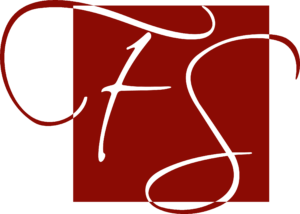If you have had the pleasure of riding a horse in the serenity of a wide-open landscape, you more than likely have experienced the intense beauty and emotion that often accompanies the experience. While the potent smell of the stables might not be the best part of the hobby, the rides are often unforgettable … taking you past scenery or helping you overcome competitive goals. The bond one forms with these animals and the shared sense of belonging cannot be met in many other sports.
When it comes to trail or competitive riding, physical requirements and mental clarity bring the spirit of athleticism, challenge and compassion. Riders tend to form emotional bonds with their horses, as well as a deep sense of friendship. Horses can essentially become an outlet to the rider – a tool to help escape from the stressful parts of life.
 “Stirrup” Strength
“Stirrup” Strength
Frisco and the surrounding area is home to facilities that eagerly assist horses in need of medical attention and offer the chance for community members to get involved and learn more about these larger-than-life, intelligent animals.
While horseback riding is undeniably captivating to watch, the sport itself is no small feat. Yes, you read that correctly – a sport. Ask any rider who competes with their horse regularly. Horseback riding can mean more than mere trail rides through the woods. Riding horses might not be the most conventional athletic example, but the physical requirements are rigorous and demanding. Horseback riding requires the simultaneous utilization of the rider’s back, abs, pelvis and thighs. This keeps the torso stabilized, allowing the rider to keep control of the horse. The cardiovascular energy exerted keeps the rider physically active and healthy.
Geared Up
The basic equipment required for a successful riding experience often includes a saddle, saddle pad, bridle, helmet and safety stirrups. The rider should also consider investing in proper first aid gear for both themselves and the horse, such as a hoof pick and bandages. However, the equipment will vary depending on the style of riding the horse will endure. Western and English riding each have specific saddle requirements. Western horseback riding calls for a wider saddle, designed for long hours of comfortable use. The English saddle is smaller, resembling European military models. The competition type will also require specific gear for both the horse and rider. At a rodeo, for example, horseback riding equipment is relatively similar to noncompetitive riding, with the exception that riders must wear hats or protective headgear during the ride. Vests are also required, to prevent injury if a rider falls off their horse. Racing, however, takes a lot of professional-grade equipment for the horse to compete. This includes saddle pads, exercise irons, stirrup leather, horse blinkers, halters, bits and nosebands – all made specifically for racing.
A Place for Peace
While riding horses may seem exclusive for intense and athletic riders, the therapeutic value should not be overlooked. Equine-assisted activities, according to the Professional Association of Therapeutic Horsemanship International (PATH), are any activities involving a mental health professional’s patient and their horse. This is a source of effective mental health assistance for many riders. Autism Spectrum Disorder (ASD) is a developmental disorder commonly characterized by communication and behavioral limitations. According to the Center for Disease Control and Prevention, one in 68 children will obtain an ASD diagnosis, with symptoms arising in the child as early as three years of age. Because horses have the ability to interpret the body language of the rider, this helps communication skills develop within riders who may have difficulty with expression.
Another resource for those with special needs who are interested in horses is therapeutic riding. That emotional connection between the horse and its rider can be especially beneficial because it encourages confidence, independence and communication in the rider, making equine-assisted therapy an extremely valuable resource.
 Riding Local
Riding Local
Prospering Farm is a local, family-owned business that offers the service of teaching students to ride horses. The farm offers a variety of 45 lessons to participants that include horses and ponies.
Susan Horn, the owner and head trainer of Prospering Farm, says, “Horseback riding gives the student amazing opportunities for confidence and responsibility. Horses teach the rider about patience, awareness and, most importantly, that hard work pays off.” Ms. Horn goes on to explain that riding horses is a true sport for the rider. “It is a great way to exercise, due to riding being a muscle-building, strength training and cardio workout for both the horse and the rider.”
The facility offers year-round riding, as well as a large indoor arena and three outdoor arenas. When you are at Prospering Farm, you still feel like you are out in the country. Riders even have the opportunity to compete at Prospering Farm eight to 10 times a year in barn shows attended by riders from all over the North Texas area.
Becky’s Hope Horse Rescue is another resource for community members in search of gaining equine experience and knowledge. This organization is 100 percent volunteer based and funded solely by donations. Volunteers at the facility learn the rescue process for horses and how to adequately provide proper care. Not only is Becky’s Hope Horse Rescue focused on giving back to horses, but it strives to give to the community, as well. Once these horses are trained, they assist with law enforcement’s mounted search and rescues. This gives Frisco a local, volunteer-based search and rescue team.
The primary goal the organization has is to teach volunteers that buying a horse is a 30-year commitment that requires a large amount of time, care and devotion. Above all, Becky’s Hope Horse Rescue believes that rescued horses rescue people.
ManeGait Therapeutic Horsemanship is a therapeutic riding facility serving children and adults with special needs. Located on 14 acres in west McKinney, ManeGait’s focus is to provide both children and adults with the experience of equine-assisted therapy. The combined benefits of certified instructors and therapy horses have the power to greatly aid individuals with physical, emotional, cognitive, sensory and behavioral disabilities.
 Every week, ManeGait services 150 riders with horseback riding that promises to offer strengthening in physical and mental functions, such as balance and teamwork. What makes ManeGait truly revolutionary is their GaitWay to the Brain program. This program is the first of its kind to integrate brain-building exercises into the framework of equine therapy to extend and amplify the benefits of riding. The facility continues to research and develop more programs that revolutionize equine therapy’s impact on riders. The facility is proud to supply 25 therapy horses and nine PATH certified instructors for its riders. The love the community has for this facility is evident in the 1,400 active volunteers and 4,500 service hours completed each year.
Every week, ManeGait services 150 riders with horseback riding that promises to offer strengthening in physical and mental functions, such as balance and teamwork. What makes ManeGait truly revolutionary is their GaitWay to the Brain program. This program is the first of its kind to integrate brain-building exercises into the framework of equine therapy to extend and amplify the benefits of riding. The facility continues to research and develop more programs that revolutionize equine therapy’s impact on riders. The facility is proud to supply 25 therapy horses and nine PATH certified instructors for its riders. The love the community has for this facility is evident in the 1,400 active volunteers and 4,500 service hours completed each year.
If you are searching for an escape from everyday stress, a way to improve physical and mental capabilities or simply for an outlet or way to spend more time with animals, horseback riding may be just the answer you have been looking for. The equine therapy resources are rich in the Frisco area, and the genuine dedication devoted instructors have for their riders is truly a sight to see.
Amelia Thomas is the photographer for Frisco STYLE Magazine. She is preparing to start college in N.Y. this fall!

